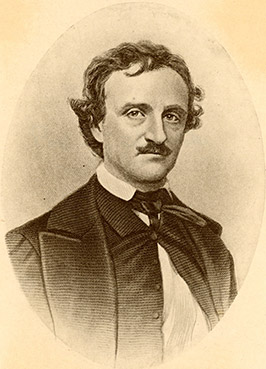Reading Between The Lines: Reading in the public domain
 CREDIT: PHOTOS.COM / THINKSTOCK
CREDIT: PHOTOS.COM / THINKSTOCKYou can find classic works by Edgar Allen Poe at gutenberg.org or archive.org.
The best things in life are free and doubly so for literature fallen in the public domain. People often forget how what we consider classics, even modern classics, are now expired in copyright, and therefore freely distributable without legal repercussion.
What is the public domain, exactly? Well, at least within the realm of the United States and North America largely, a written work enters public domain – without a specific rights holder that controls the intellectual property of the work – 70 years after the expiry of the author. All works published 1923 are also in the public domain. The wealth of knowledge and culture to be found in works falling under this category is basically immeasurable.
Visiting gutenberg.org or archive.org and downloading any public domain work helpfully compiled into the ebook format of your liking means no excuses in finally catching up on your reading.
Authors to revisit include:
Franz Kafka
“Kafkaesque” is often utilized as an adjective by users who don’t entirely understand its meaning. Franz Kafka’s works were strange, twisted and featured extraordinary, often unfair circumstances befalling unassuming, non-noteworthy every men. Kafka’s works are all under public domain.
Edgar Allan Poe
Dark, brooding and foreboding, Edgar Allan Poe pioneered gothic fiction, becoming a key figure in American literary history. But of course fans of the author of The Tell-Tale Heart and The Raven need no introduction to his literary achievements, all easily snaggable for your ebook, cost-free.
H.G. Wells
Modern science fiction owes a great deal to this British author. Several of his works are already subject to cinematic adaptation in the 20th century – barring that rather mediocre Time Machine movie in 2002 – but are worth a read. Wells may be too optimistic for some futurists, but his works can still appease different tastes.
Joseph Conrad
Exposing the dark horrors that went on on the Congo River, Heart of Darkness is considered by many to even possibly be one of the first works of human-rights fiction. All of Conrad’s works, based on his experiences in the merchant navy, up to 1923, are fully public domain.













